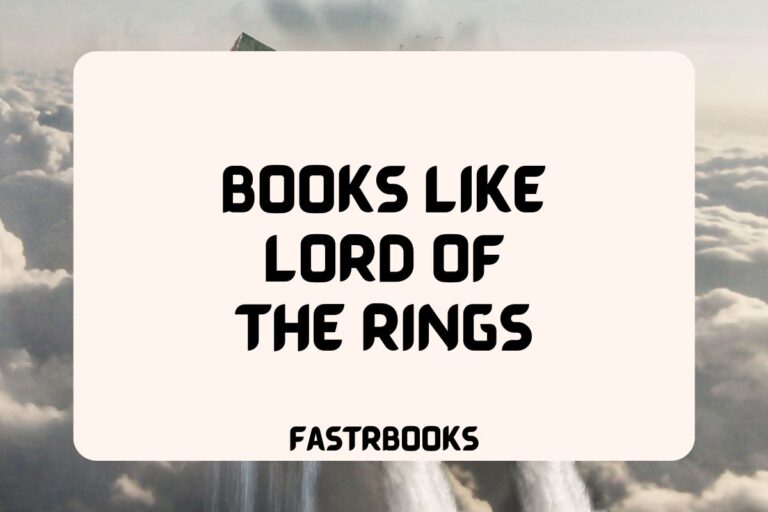10 Best Space Opera Books
Space opera, a subgenre of science fiction, captivates readers with epic adventures set against the vast backdrop of space.
In this blog post, we’ll delve into some of the best space opera books that transport readers to distant galaxies, introduce them to fascinating alien civilizations, and ignite their sense of wonder.
Whether you’re a seasoned space enthusiast or a newcomer to the genre, these books promise to take you on an unforgettable journey through the cosmos.
Best Space Opera Books
1. Dune by Frank Herbert
“Dune” is set in the distant future amidst a feudal interstellar society in which various noble houses control planetary fiefs. It tells the story of young Paul Atreides, whose family accepts the stewardship of the desert planet Arrakis.
As the only source of a highly valuable substance, control of Arrakis is a coveted and dangerous undertaking. The story explores the complex, multi-layered interactions between politics, religion, ecology, technology, and human emotion, as the factions of the empire confront each other in a struggle for the control of Arrakis and its “spice”.
What makes it amazing?
“Dune” is acclaimed for its rich and complex universe, offering a detailed exploration of politics, religion, and power. Herbert’s creation of an intricate ecology for Arrakis and the way he intertwines this with a deep philosophical and spiritual narrative sets it apart from other science fiction novels.
Its themes of environmentalism, survival, and the human capacity for adaptation resonate deeply with readers, making it a timeless masterpiece in the space opera genre.
2. The Hyperion Cantos by Dan Simmons
The Hyperion Cantos begins with “Hyperion,” introducing a universe on the brink of a massive war. Seven pilgrims set out on a journey to the distant world of Hyperion, each sharing their own story that reveals the complexity of the universe.
These tales intertwine with the fate of the galaxy, involving the mysterious Time Tombs, the entity known as the Shrike, and the impending conflict that threatens to consume all.
What makes it amazing?
The series is renowned for its rich narrative structure, drawing inspiration from classical literature and poetry, notably mimicking the structure of The Canterbury Tales.
Simmons crafts a deeply emotional and intellectual space opera that explores themes of time, memory, and humanity. The intricate plotting, detailed world-building, and the poignant stories of each pilgrim make “The Hyperion Cantos” a profound and captivating read.
3. The Culture Series by Iain M. Banks
The Culture Series portrays a post-scarcity, semi-anarchist utopia consisting of various humanoid races and managed by advanced artificial intelligences.
The series spans several novels, each exploring different facets of the Culture universe, including its interactions with other societies that are often in stark contrast to its own values and technologies. Banks examines complex moral and philosophical issues through the lens of the Culture’s interventions in less advanced civilizations.
What makes it amazing?
What sets the Culture Series apart is its examination of a utopian society through the lens of its interactions with different, often conflicting civilizations.
Banks’ ability to weave intricate plots with deep philosophical questions about morality, consciousness, and the nature of civilization makes the series a standout. The vividly imagined universe, filled with fascinating technologies and beings, offers a hopeful yet critical view of the future.
4. Revelation Space by Alastair Reynolds
“Revelation Space” is a hard science fiction novel that introduces a universe where humanity has spread to the stars but is divided among factions and species.
The story intertwines the lives of a scientist uncovering a deadly secret, a starship chasing a myth, and a soldier on a personal mission, all against the backdrop of an ancient and deadly mystery threatening the galaxy. Reynolds, an astrophysicist, brings a level of scientific realism to the space opera genre, blending it with deep, dark mysteries.
What makes it amazing?
The novel’s combination of hard science fiction elements with the grand scale and epic narrative of space opera sets it apart.
Reynolds’ background in science lends authenticity to the technological and cosmic aspects of the story, while his skillful storytelling weaves these elements into a compelling narrative. The intricate plot, complex characters, and the overarching mystery offer a deeply engaging and intellectually stimulating experience.
5. The Vorkosigan Saga by Lois McMaster Bujold
The Vorkosigan Saga follows the life of Miles Vorkosigan, a young nobleman from the planet Barrayar, who overcomes physical disabilities and prejudicial societal norms to achieve remarkable success in military, diplomatic, and espionage endeavors.
The series spans numerous novels, each blending elements of military science fiction, space opera, and political intrigue. Bujold creates a richly detailed universe with complex characters, exploring themes of power, identity, and the human spirit.
What makes it amazing?
Lois McMaster Bujold’s ability to blend deep character development with fast-paced plots and intricate political intrigue makes the Vorkosigan Saga exceptional. Miles Vorkosigan, as the central character, is brilliantly crafted, with his vulnerabilities and strengths driving the narrative forward.
The series’ exploration of societal norms, personal identity, and the nature of leadership, all within a vividly imagined futuristic setting, makes it a standout in the space opera genre.
6. The Expanse Series by James S.A. Corey
The Expanse Series starts with “Leviathan Wakes” and unfolds across a future where humanity has colonized the solar system but remains divided among Earth, Mars, and the Asteroid Belt.
The series kicks off with a missing girl, a haunted spaceship, and a tense, escalating conflict that threatens to erupt into an all-out war across the solar system. It skillfully combines elements of detective fiction, political thriller, and space warfare, presenting a complex and nuanced portrayal of interplanetary politics and human dynamics.
What makes it amazing?
The Expanse Series stands out for its realistic portrayal of space travel and life across different planets and habitats, grounded in current scientific understanding.
The authors (writing under the pen name James S.A. Corey) masterfully weave together multiple storylines, featuring a diverse cast of characters whose fates intertwine in unexpected ways.
The series’ exploration of the political, social, and ethical implications of human expansion into space, combined with its gripping narrative and richly imagined worlds, makes it a seminal work in modern space opera.
7. Ancillary Justice by Ann Leckie
“Ancillary Justice” is the first book in the Imperial Radch trilogy, introducing readers to a universe ruled by the Radch empire, which expands through the annexation of planets and uses human bodies (“ancillaries”) controlled by AI ships to enforce its rule.
The story follows Breq, the sole survivor of a starship and its crew, on a quest for revenge against the ruler of the empire. Leckie’s novel is notable for its exploration of themes such as identity, consciousness, and the nature of artificial intelligence, all while challenging norms around gender and society.
What makes it amazing?
“Ancillary Justice” is remarkable for its innovative narrative structure and its exploration of complex themes through the lens of an AI protagonist.
The novel’s approach to gender, with the Radch language not distinguishing between genders and the narrative using female pronouns by default, invites readers to reconsider their own perceptions of gender and identity.
Leckie’s skillful blending of space opera and philosophical inquiry, coupled with a compelling story of personal vengeance and political intrigue, makes this book a groundbreaking addition to the genre.
8. Pandora’s Star by Peter F. Hamilton
“Pandora’s Star,” the first in the Commonwealth Saga, opens with the discovery of a mysterious alien forcefield encapsulating an entire solar system.
This prompts the human-dominated Commonwealth to embark on a mission that spans the galaxy, uncovering ancient alien civilizations, interstellar intrigue, and hidden threats.
Hamilton constructs a richly detailed universe with advanced technologies, including wormhole travel, immortality through rejuvenation, and sentient AI, setting the stage for an epic saga that delves into the mysteries of the universe and humanity’s place within it.
What makes it amazing?
Peter F. Hamilton’s “Pandora’s Star” is celebrated for its expansive world-building and intricate plot, weaving together the stories of a vast cast of characters across a sprawling narrative. The novel’s detailed exploration of future technologies, societal structures, and alien cultures is matched by its deep philosophical questions about human nature, exploration, and the unknown.
Hamilton’s ability to craft a compelling, complex universe filled with suspense, intrigue, and wonder makes it a standout masterpiece in the space opera genre.
9. The Left Hand of Darkness by Ursula K. Le Guin
“The Left Hand of Darkness” is part of Ursula K. Le Guin’s Hainish Cycle, set on the planet Gethen, a world where the inhabitants can choose and change their gender. The story follows Genly Ai, a human envoy sent to Gethen to convince its people to join an interstellar alliance.
Through Ai’s eyes, readers explore themes of gender, sexuality, and the relativity of cultural norms, as he navigates the complex politics of a world without fixed gender roles, against the backdrop of an icy, harsh environment.
What makes it amazing?
Ursula K. Le Guin’s novel is groundbreaking for its exploration of gender fluidity and its challenge to traditional gender roles, long before such conversations became prominent in public discourse. The novel’s profound reflections on human nature, communication, and understanding, set within a richly imagined alien culture, make it a deeply thought-provoking read.
Le Guin’s masterful storytelling, combined with her exploration of sociological and anthropological themes, cements “The Left Hand of Darkness” as a seminal work in the space opera and science fiction genres.
10. Foundation Series by Isaac Asimov
The Foundation Series begins with “Foundation,” set far in the future when the Galactic Empire is nearing its end. The series follows the efforts of Hari Seldon, a psychohistorian who uses mathematics to predict the future, as he establishes two Foundations at opposite ends of the galaxy in an attempt to preserve knowledge and save humanity from a dark age.
Asimov’s series explores the rise and fall of civilizations, the power of knowledge, and the concept of psychohistory, blending science fiction with elements of historical epic.
What makes it amazing?
Isaac Asimov’s Foundation Series is renowned for its grand scope, exploring the cyclical nature of history and the possibility of predicting and influencing future events through the science of psychohistory.
The series’ intellectual depth, combined with its compelling narrative and exploration of ethical and philosophical questions, makes it a cornerstone of the space opera genre. Asimov’s ability to construct a vast and plausible universe, filled with intriguing concepts and a wide array of characters, has left a lasting impact on science fiction literature.






